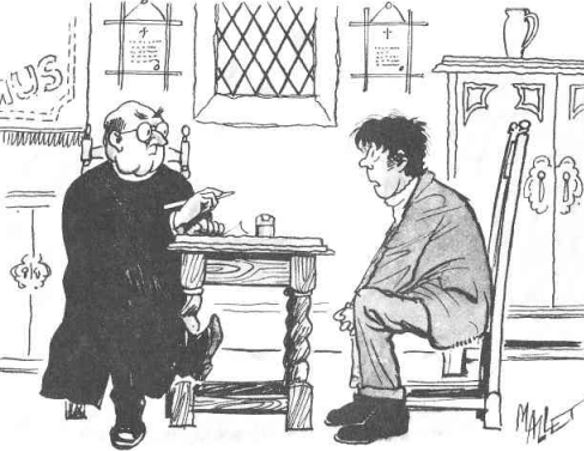

Grammar


Tenses


Present

Present Simple

Present Continuous

Present Perfect

Present Perfect Continuous


Past

Past Simple

Past Continuous

Past Perfect

Past Perfect Continuous


Future

Future Simple

Future Continuous

Future Perfect

Future Perfect Continuous


Parts Of Speech


Nouns

Countable and uncountable nouns

Verbal nouns

Singular and Plural nouns

Proper nouns

Nouns gender

Nouns definition

Concrete nouns

Abstract nouns

Common nouns

Collective nouns

Definition Of Nouns

Animate and Inanimate nouns

Nouns


Verbs

Stative and dynamic verbs

Finite and nonfinite verbs

To be verbs

Transitive and intransitive verbs

Auxiliary verbs

Modal verbs

Regular and irregular verbs

Action verbs

Verbs


Adverbs

Relative adverbs

Interrogative adverbs

Adverbs of time

Adverbs of place

Adverbs of reason

Adverbs of quantity

Adverbs of manner

Adverbs of frequency

Adverbs of affirmation

Adverbs


Adjectives

Quantitative adjective

Proper adjective

Possessive adjective

Numeral adjective

Interrogative adjective

Distributive adjective

Descriptive adjective

Demonstrative adjective


Pronouns

Subject pronoun

Relative pronoun

Reflexive pronoun

Reciprocal pronoun

Possessive pronoun

Personal pronoun

Interrogative pronoun

Indefinite pronoun

Emphatic pronoun

Distributive pronoun

Demonstrative pronoun

Pronouns


Pre Position


Preposition by function

Time preposition

Reason preposition

Possession preposition

Place preposition

Phrases preposition

Origin preposition

Measure preposition

Direction preposition

Contrast preposition

Agent preposition


Preposition by construction

Simple preposition

Phrase preposition

Double preposition

Compound preposition

prepositions


Conjunctions

Subordinating conjunction

Correlative conjunction

Coordinating conjunction

Conjunctive adverbs

conjunctions


Interjections

Express calling interjection

Phrases

Sentences


Grammar Rules

Passive and Active

Preference

Requests and offers

wishes

Be used to

Some and any

Could have done

Describing people

Giving advices

Possession

Comparative and superlative

Giving Reason

Making Suggestions

Apologizing

Forming questions

Since and for

Directions

Obligation

Adverbials

invitation

Articles

Imaginary condition

Zero conditional

First conditional

Second conditional

Third conditional

Reported speech

Demonstratives

Determiners


Linguistics

Phonetics

Phonology

Linguistics fields

Syntax

Morphology

Semantics

pragmatics

History

Writing

Grammar

Phonetics and Phonology

Semiotics


Reading Comprehension

Elementary

Intermediate

Advanced


Teaching Methods

Teaching Strategies

Assessment
Bad Handwriting
المؤلف:
L.A Hill
المصدر:
Intermediate Steps To Understanding
الجزء والصفحة:
32-1
5/11/2022
1355

Pat came over from Ireland to England with his wife one year to find work. He got quite a good job with a building company, and as he did not drink or smoke, he saved up quite a lot of money.
His wife's parents were still in Ireland, and one day she got a telegram to say that her mother was ill, so Pat gave her some money and she went to Ireland to see her.
After a week, Pat wanted to write a letter to her, but he could not read or write very well, so he went to his priest and asked him to do it for him. Pat told the priest what he wanted to say, and the priest wrote it down. After a few minutes Pat stopped, and the priest said, do you want to say any more?
'Only, "Please excuse the bad writing and spelling",' Pat said.
A Which of these sentences are true (T) and which are false (F)? Write Tor F.
- Pat brought his wife to England with him.
- He did not spend all his money
- His mother-in-law came to England too, because she was ill.
- Pat went to see his mother-in-law because she was ill.
- Pat wrote a letter to his wife after a week.
- He asked his wife to excuse the priest's bad writing and spelling
B Answer these questions:
- Why did Pat come to England?
- How did he manage to save money?
- Why did his wife have to go to Ireland?
- What did Pat want to do a week later?
- Why didn't he write the letter?
- Who wrote it for him?
- What did the priest say after Pat had finished?
- And what did Pat answer?
C Draw lines from the words on the left to the correct words on the right.
1. A building company a. became ill.
2. Pat b. could not read or write.
3. Pat's mother-in-law C. gave Pat a job.
4. Pat's wifed D.went home to see her mother.
5. The prieste E.wrote Pat's letter.
 الاكثر قراءة في Intermediate
الاكثر قراءة في Intermediate
 اخر الاخبار
اخر الاخبار
اخبار العتبة العباسية المقدسة

الآخبار الصحية















 قسم الشؤون الفكرية يصدر كتاباً يوثق تاريخ السدانة في العتبة العباسية المقدسة
قسم الشؤون الفكرية يصدر كتاباً يوثق تاريخ السدانة في العتبة العباسية المقدسة "المهمة".. إصدار قصصي يوثّق القصص الفائزة في مسابقة فتوى الدفاع المقدسة للقصة القصيرة
"المهمة".. إصدار قصصي يوثّق القصص الفائزة في مسابقة فتوى الدفاع المقدسة للقصة القصيرة (نوافذ).. إصدار أدبي يوثق القصص الفائزة في مسابقة الإمام العسكري (عليه السلام)
(نوافذ).. إصدار أدبي يوثق القصص الفائزة في مسابقة الإمام العسكري (عليه السلام)


















